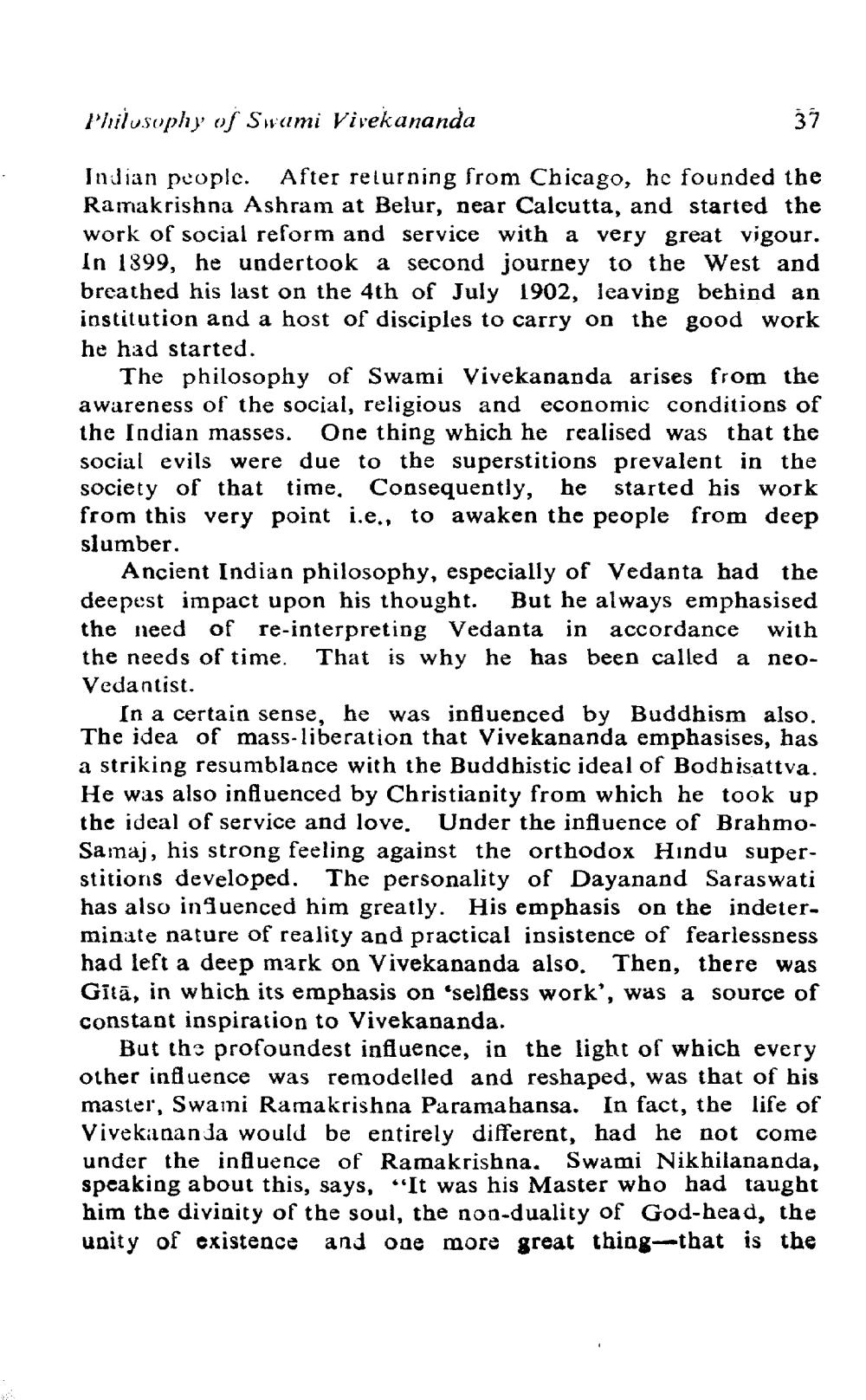________________
Philusophy of Swami Vivekananda
37
Indian people. After relurning from Chicago, he founded the Ramakrishna Ashram at Belur, near Calcutta, and started the work of social reform and service with a very great vigour. In 1899, he undertook a second journey to the West and breathed his last on the 4th of July 1902, leaving behind an institution and a host of disciples to carry on the good work he had started.
The philosophy of Swami Vivekananda arises from the awareness of the social, religious and economic conditions of the Indian masses. One thing which he realised was that the social evils were due to the superstitions prevalent in the society of that time. Consequently, he started his work from this very point i.e., to awaken the people from deep slumber.
Ancient Indian philosophy, especially of Vedanta had the deepest impact upon his thought. But he always emphasised the need of re-interpreting Vedanta in accordance with the needs of time. That is why he has been called a neoVedantist.
In a certain sense, he was influenced by Buddhism also. The idea of mass-liberation that Vivekananda emphasises, has a striking resumblance with the Buddhistic ideal of Bodhisattva. He was also influenced by Christianity from which he took up the ideal of service and love. Under the influence of BrahmoSamaj, his strong feeling against the orthodox Hindu superstitions developed. The personality of Dayanand Saraswati has also iniuenced him greatly. His emphasis on the indeterminate nature of reality and practical insistence of fearlessness had left a deep mark on Vivekananda also. Then, there was Gitā, in which its emphasis on 'selfless work', was a source of constant inspiration to Vivekananda.
But the profoundest influence, in the light of which every other influence was remodelled and reshaped, was that of his master, Swami Ramakrishna Paramahansa. In fact, the life of Vivekananda would be entirely different, had he not come under the influence of Ramakrishna. Swami Nikhilananda, speaking about this, says, “It was his Master who had taught him the divinity of the soul, the non-duality of God-head, the unity of existence and one more great thing that is the




